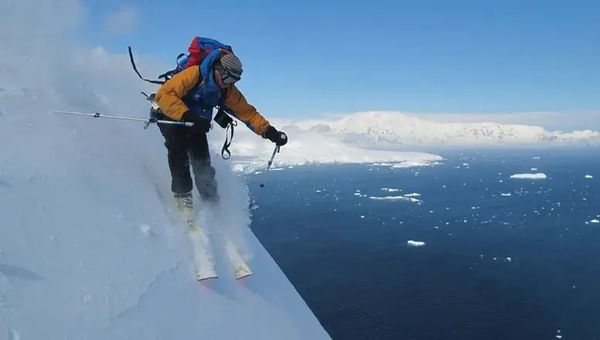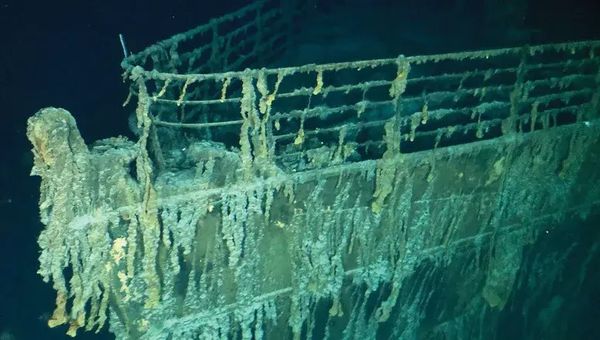The fatal deep-sea dive of OceanGate Expeditions' Titan captured the world's attention and thrust so-called "extreme tourism" – travel experiences that test the physical and mental limits of participants – into the spotlight.
Despite the extreme risks, not to mention the extreme price tags, industry experts say that they don't expect demand for extreme tourism to wane any time soon.
Travel advisors who curate these experiences say participants find too much value in high-risk, high-reward adventures to be deterred by the potential dangers they carry, even when the realities of catastrophe are realised.
Plus, demand for these high-octane opportunities is growing.
Craig Curran, president of DePrez Group of Travel Companies and an extreme traveller himself who began selling this type of travel in 2011, called it "transformational travel".
"People are changing who they are," he said. "They're expanding their horizons in significant ways."
Extreme tourism is a relatively small subcategory of adventure travel, whose advisors say makes up between 5% and 15% of their overall business.

A heli-skier races down a mountain in Antarctica on an extreme adventure tour with Pelorus. Photo Credit: Pelorus
Deep space, deep pockets
When talking about extreme tourism, an example that typically comes to mind is space tourism. After years of planning, Virgin Galactic said it expected to take paying passengers to the edge of space starting next month. Virtuoso has long been Virgin's trade partner in the project.
Other examples include aerobatic gliding; extreme via ferrata (rock climbing); heli-skiing and heli-hiking; mountain climbing; deep-sea diving; and bear and gorilla trekking.
The niche is primarily driven by, and has been limited to, those with pockets deep enough to afford the accommodations, preparations, certified guides and equipment used to execute these trips. Excursions can run well into the six-figure range and beyond.
"Space exploration would likely be priced between US$250,000 to US$500,000 per seat, reserving your space years in advance," Joshua Bush, CEO of Avenue Two Travel, said of using suppliers like Space Perspective or Virgin Galactic. "You are in the millions for other experiences like SpaceX, [which] is extremely difficult to accomplish."
Yacht-based heli-skiing trips to Antarctica with UK-based luxury tour operator Pelorus start at around US$750,000 to upward of US$1 million, the company said, with demand increasing since it launched in December 2021.
More affordable trips exist, too, although "affordable" is a relative term. DePrez's Curran said zero-G or weightless flight experiences cost around US$9,500, while high-altitude skydiving, with jumps from as high as 9,800 metres, can cost around US$4,500 per person.

Bill Price, former president of YMT Vacations, in the OceanGate Titan submersible on a successful mission to reach the Titanic wreck at the bottom of the Atlantic Ocean. Photo Credit: Bill Price
OceanGate was another example of a company offering big-ticket, expedition-style opportunities, with seats on its Titan submersible that promised a deep-dive to the Titanic wreck selling for US$250,000. The company had three five-person submersibles, but on its first Titanic-bound dive this year, the Titan imploded, killing all five people aboard and prompting scrutiny of the dangers of this type of travel.
"The tragedy was well documented by the media, so that will be in the back of any client's mind before attempting something similar," said Bush, who is also an extreme traveller and has a personal goal of summiting the world's highest peaks.
Bush said the incident, while tragic, was likely to prompt more caution and discernment in the vetting process of companies offering extreme adventure trips than it is to dampen demand for them.
"If it's a company we are not familiar with, we have our trusted contacts look into it for us and report back," said Stacy Fischer-Rosenthal, president of Fischer Travel Enterprises, a membership-only agency that costs US$150,000 to join; it can curate next-level adventures like aerobatic gliding, gorilla trekking and glacier walks.
"We aim to make our clients' dreams come true, in whatever shape that may come, but in a safe and 'vetted' space," she said.
But extreme travel experiences are not the kind of trips you necessarily sell, Curran said. "It's not just transactional and selling a trip."

The Titanic's bow, viewed from OceanGate's Titan submersible. Photo Credit: Bill Price
Rather, extreme adventure tourism is more like a lifestyle, a small community he said is made up of like-minded travelers who see themselves as explorers, ones willing to test the limits of the body and mind in the name of human exploration and hoping to deepen their knowledge of the world and of themselves.
That's how former YMT Vacations president Bill Price viewed his experience to see the Titanic wreck in 2021 aboard the Titan. He saw himself and his fellow "mission specialists" – among them deep-sea explorer Paul-Henri Nargeolet, who died aboard the Titan – not as tourists, but as science-driven explorers.
"It was the brotherhood of all the people working together as a team," Price said. "Everyone was like-minded and adventure-seeking, but everyone had technical expertise. That's why I made the decision [to go]."
Hudson said they "have an implicit belief that they are in control of the experience and that they are not exposing themselves to risk and danger because they can control the situation." He added that research shows that as the participant gains experience, perceptions of risk decrease and perceptions of competence increase.
Still, within this community of travellers, they know they share great risks together on daring trips – for rewards even greater.
"Yes, it's very dangerous. Nobody said it wasn't," said Price, reflecting on Titan's last mission. "These are great people. They're kind of my heroes."
Source:Travel Weekly